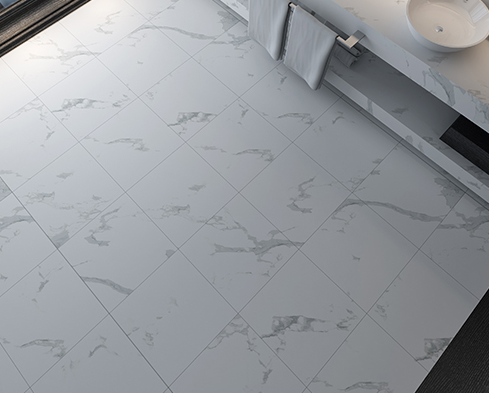

When narrowing down your choices for bathroom or kitchen countertops, it usually comes down to two materials: quartz (manufactured stone) vs. granite (natural stone). This is not an easy decision, as the differences between these two countertop materials are not obvious. After all, both come directly from the earth and are as hard as stone. How are they different?
Granite is a purely natural stone that comes directly from the quarry and is then cut into thin slabs, polished, and made into countertops.
Quartz countertops are man-made stone products that may contain large amounts of natural quartz, but may also contain other minerals. They are not slabs from the quarry, but are formed by grinding the by-products of the stone into large slabs for countertops and other products.

One of the advantages of granite over manufactured stone is that each granite slab has a slightly different mineral pattern and color, which means your countertop will be unique. Quartz countertops are more uniform in appearance as an engineered product, although there are many colors and unique patterns to choose from, including forms that don't look like granite at all. You can visit the ISTONE website to see our wide range of colors.
There's no doubt about it: granite and quartz are both high-quality, high-priced countertop materials. If you have the budget, these are not the right countertop materials for you.
Granite countertops can be installed for $80 to $175 per square foot. The price difference depends on the style chosen and the type of finish required. As quartz has become more popular and widespread, the cost of basic countertops has dropped, with unique designer styles and colors taking over the high end of pricing.

Quartz has a distinct advantage over granite, although both materials are extremely durable. Granite is a relatively porous stone that needs to be sealed during installation, and it can have inherent flaws that make it prone to cracking. Quartz, on the other hand, does not need to be sealed because of the resin used in the manufacture of the slab.
Quartz is also less prone to bacterial growth, again thanks to the resin that makes its surface less porous.
Both countertop materials are overwhelmingly made of natural materials, but granite countertops are slightly superior because they are made of 100% stone, while quartz is about 93% natural and the remaining 7% is made up of colored pigments and the polymer resins that bind the materials together.
On the other hand, granite countertops require quarrying from the earth, while quartz countertops are effectively made from the remaining stone byproducts and do not require quarrying.

Both granite and quartz are quality countertop materials that can add real estate value to a home. ISTONE sells quartz countertops in a variety of styles and colors for you to choose from. Please send us a message to get details and a quote.